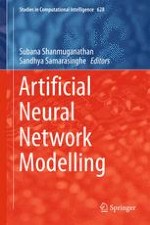2016 | OriginalPaper | Buchkapitel
Sentiment Analysis on Morphologically Rich Languages: An Artificial Neural Network (ANN) Approach
verfasst von : Nishantha Medagoda
Erschienen in: Artificial Neural Network Modelling
Aktivieren Sie unsere intelligente Suche, um passende Fachinhalte oder Patente zu finden.
Wählen Sie Textabschnitte aus um mit Künstlicher Intelligenz passenden Patente zu finden. powered by
Markieren Sie Textabschnitte, um KI-gestützt weitere passende Inhalte zu finden. powered by
